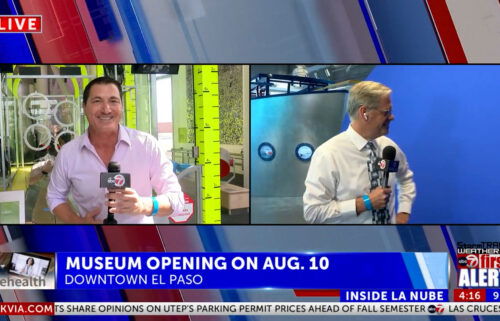Special education teacher shortage worries Michigan educators
Click here for updates on this story
FLINT, Michigan (WNEM) — A shortage of special education teachers in Michigan is growing worse during the pandemic.
That shortage is prompting the state to loosen restrictions just to fill gaps, but those directly affected by the problem say the state needs to act before the problem gets out of hand.
“It was a 40 percent increase in retirement from last year’s numbers,” said Kate Dupuis, a special education elementary teacher at Carrollton Public Schools.
Dupuis said the statewide teacher shortage is bad and getting worse. She’s also a mother to a daughter with special needs.
“So this is a significant effect to me as a mother to be losing these teachers because then it affects me as a mother because then I only have these years to make sure she gets the skills,” Dupuis said.
Dupuis attributed shortages to teacher’s burnout, unflexible standardized evaluations, the high cost of education needed to go into the field, and of course the pandemic.
“This is just going to continue to increase because of COVID,” said Abby Cypher, the executive director of the Michigan Association of Administrators of Special Education.
Cypher said they already had a severe shortage before COVID and things are not getting better.
The state superintendent, Dr. Michael Rice, has even announced a waiver application for special education teachers to go outside of their specialty to teach a wider array of special needs students.
But Cypher doesn’t think that alone is enough and is calling state leaders to make a plan.
“Look at what we have, what we need,” Cypher said. “What does our data say and then create a strategic action plan to move forward. We’re not seeing people go into the field, we’re having more programs more teacher preparation programs in Michigan close every year than we have openings.”
Cypher adds that there needs to be more of a focus on teacher wellness. She said they are seeing teachers struggle with their mental health throughout the pandemic similar to healthcare workers.
If nothing changes, Dupuis said it’s just going to bleed into the next school year and beyond.
“My need to help is being fed, I’m still a person who likes to help and I’m doing that. It’s just that I don’t know if I can survive on that alone and keep going,” Dupuis said.
Please note: This content carries a strict local market embargo. If you share the same market as the contributor of this article, you may not use it on any platform.




